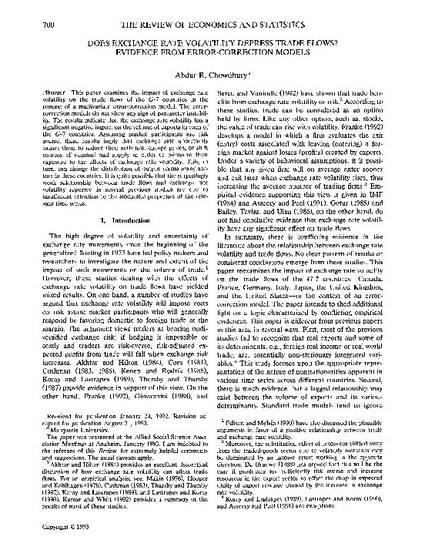
This paper examines the impact of exchange rate volatility on the trade flows of the G-7 countries in the context of a multivariate error-correction model. The error-correction models do not show any sign of parameter instability. The results indicate that the exchange rate volatility has a significant negative impact on the volume of exports in each of the G-7 countries. Assuming market participants are risk averse, these results imply that exchange rate uncertainty causes them to reduce their activities, change prices, or shift sources of demand and supply in order to minimize their exposure to the effects of exchange rate volatility. This, in turn, can change the distribution of output across many sectors in these countries. It is quite possible that the surprisingly weak relationship between trade flows and exchange rate volatility reported in several previous studies are due to insufficient attention to the stochastic properties of the relevant time series.
Available at: http://works.bepress.com/abdur_chowdhury/75/

Published version. Review of Economics and Statistics, Vol. 75, No. 4 (November 1993): 700-706. Permalink. © 1993 Massachusetts Institute of Technology Press. Used with permission.